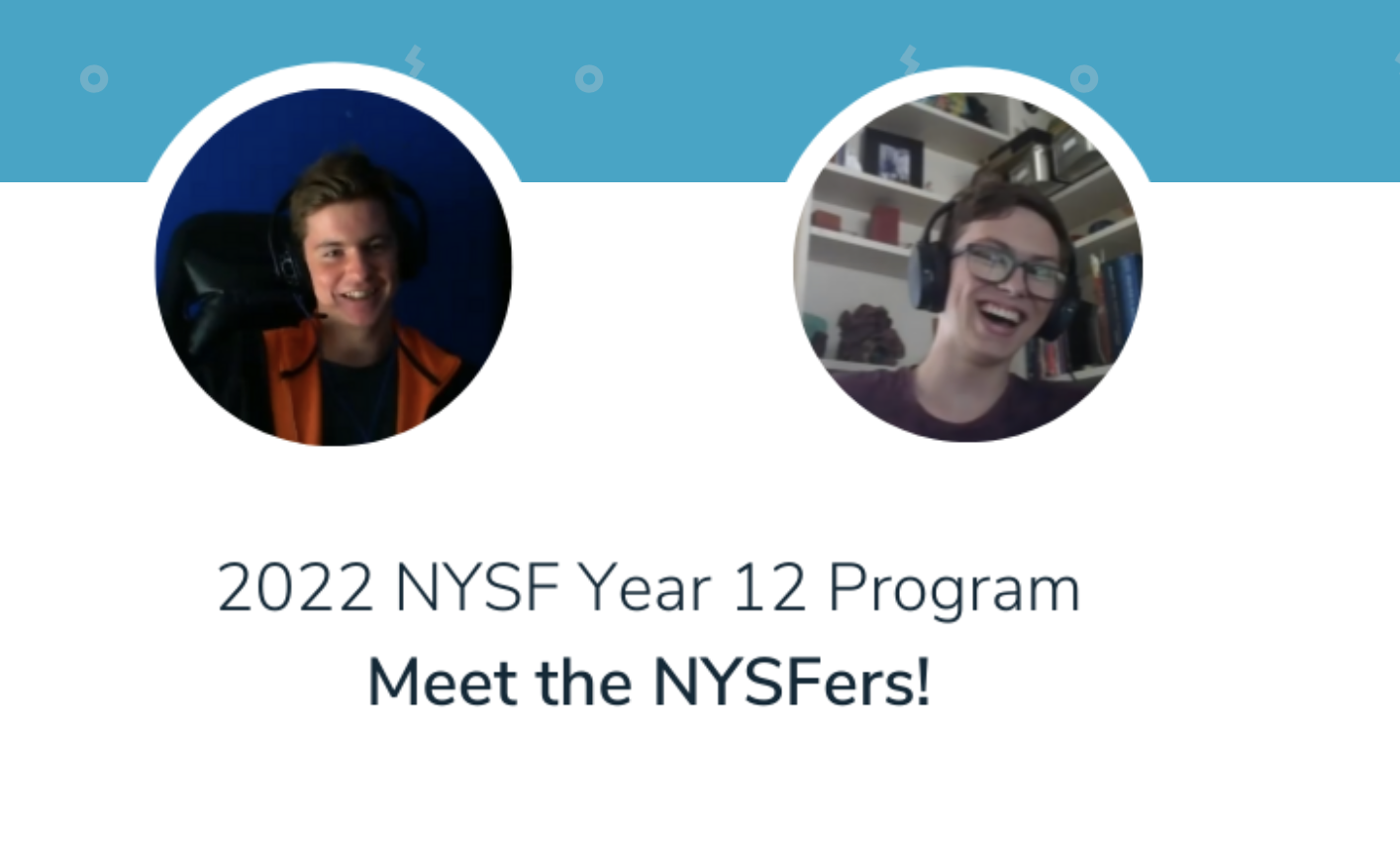NYSF

Isaac is currently taking Physics, Chemistry, Mathematical Methods, and Specialist Mathematics at his high school in Netherby, South Australia. It comes as no surprise that he’s considering physical and theoretical STEM pathways such as mathematics and astrophysics!
“Before the NYSF, I've always thought of going to the University of Adelaide, [because it] has an astrophysics course. But where to from there? Who knows!”
Isaac has a career path in mind, but after listening to the NYSF Opening Event with Lockheed Martin Australia, and attending Dr Karl’s House Party, he is keeping his options open and is now considering adding on some engineering through a double degree.
“The first thing I think I got the most out of was from Dr Karl, where he said “Don’t limit your options”. This resonated with me a lot, and I feel a lot more willing to do an undergraduate degree and just see where I go from there.”
“Before going to the NYSF I was very much, ‘I like maths. I like physics. And I'll leave it at that.’ But now if I want to pursue these passions, I might need a few other skills here and there. In the back of my mind, maybe I do a double degree in engineering? Listening to Lockheed Martin people speak on the first day shows how these can mesh together! As painful as it is, computer science and coding might be useful. The Australian Signals Directorate and Australian National University gave us a cryptography challenge and it’s been driving me insane!”
“I have been learning Python for about 3 days... I'm enjoying a lot more than I thought I would!”
The NYSF saw how much passion Isaac has for physics when he delivered a thank you on behalf of the NYSF cohort to Dr Steven Goldfarb and Dr Muhammad Alhroob from the ATLAS experiment at CERN.
“I’d like to say thank you for an insightful, inspiring, and just amazing presentation hearing about muons and the Higgs Boson, and what particle physics research might hold in the future. I feel like I’ve been to physics Disneyland, and I’m almost lost for words.’
When Dr Goldfarb enquired if that meant he was Mickey Mouse or Donald Duck, Isaac, with ever the quick wit, replied, “You’re Walt Disney, right at the top!”
We love your work, Isaac – keep exploring (and good luck with solving the cipher!)
Like Isaac, Xavier is also interested in astrophysics. However, he has a powerful story to tell about how his interests shifted to biomedical engineering after his father experienced a severe accident leaving him hospitalised for several years.
Xavier and his family were confronted at how difficult and financially inaccessible some areas of medical care such as prosthetics were, which steered him away from astrophysics, and down the path of biomedical engineering and prosthetics.
“After that confrontation, I've now switched lanes and spent the last two, maybe three, years working as hard as I could to get towards a biomedical engineering degree.”
After finishing Year 11, Xavier took the initiative to complete a base certificate in engineering and fabrication and also completed a white card industry certificate, which has put him at the front of the queue for engineering courses around the world.
“My dream is to open up a stream or line of clinics across Australia, or even globally, that offer prosthetics to people who are disabled from birth, or trauma-induced patients, and offer those prosthetics to them at an affordable price, so they’re not dying in debt and struggling to get back as a working member of society.”
The determination radiates off Xavier, and the NYSF believes he is destined to help close the gap in medical inequality in the near future.
During the program, Xavier asked Nobel Laureate Professor Peter Doherty, about whether there was a difference in how his research or findings were received before being a Nobel Laureate and after receiving the Nobel Prize, and whether this difference affected his communication between peers.
It was a great question that led to some fantastic anecdotes, including an insight into how long it takes for an idea to become part of the established story, “the original people get forgotten, in fact, when we got the Nobel Prize, someone said ‘oh my goodness, I thought those people were dead!’”
Thanks Melody.
